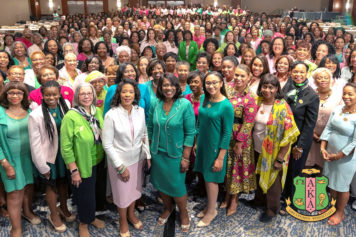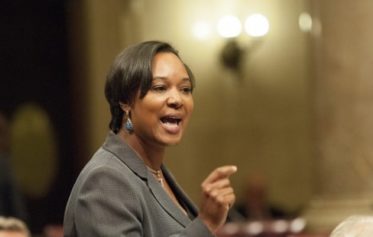The Center for Responsible Lending (CRL) sent correspondence to the Federal Deposit Insurance Corporation (FDIC) and the Office of the Comptroller of the Currency (OCC), urging them to take action against promotion of payday loans by the banks they supervise.
“This proposed guidance is urgently needed,” according to the formal comments by the CRL and a coalition of other groups. “The great majority of banks do not offer payday loans, but we are aware of at least six that do. Four are supervised by the OCC: Wells Fargo Bank, U.S. Bank, Bank of Oklahoma and its bank affiliates, and Guaranty Bank. Two are supervised by the Federal Reserve Board (FRB): Fifth Third Bank and Regions Bank. ”
The coalition also said there were clear signals that other banks are considering payday loans, citing a 2011 report by Fiserv, Inc., a provider of bank payday software, which predicted “a bank’s revenue from the product would be ‘greater than all ancillary fee revenue combined’ within two years.”
The CRL joined the AARP, Consumer Federation of America, the Leadership Conference on Civil and Human Rights, the NAACP, the National Consumer Law Center and the National Council of La Raza in submitting their comments in a 36-page document.
In February, Atlanta Black Star reported that even though 15 states had banned payday loans, increasing numbers of lenders had found a way around the bans, often with the assistance of major banks.
The banks themselves don’t issue the loans, but help the lenders to withdraw payments automatically from customers’ bank accounts, even after borrowers had tried to close their accounts or moved to stop the withdrawals.
The loans are often advertised as quick, bridge loans that help borrowers who fall short before payday. But the interest rates are high and sometimes customers need another loan after paying the first one off, because they are now in a cycle of borrow-pay-borrow again.
The Center for Responsible Lending said in a statement at the time that “the typical payday loan borrower is indebted for more than half of the year with an average of nine payday loan transactions at annual interest rates over 400 percent.”
In the comments released Monday, the coalition said research had shown that payday loans caused serious financial harm to borrowers, including an increased likelihood of bankruptcy, late payments of credit card debt and other bills, delayed medical care and loss of banking privileges.
Further, the group said, seniors who receive Social Security benefits make up more than a quarter of bank payday borrowers. The coalition also said African-Americans and Latinos are particularly hard hit by these loans.
The coalition recommended an additional series of steps to the FDIC and the Comptroller of the Currency, including requiring banks to determine the borrower’s ability to repay the loan without re-borrowing, limiting the number of bank payday loans and preventing banks from requiring automatic withdrawals on a customer’s account.
Jackie Jones, a journalist and journalism educator, is director of the career transformation firm Jones Coaching LLC and author of “Taking Care of the Business of You: 7 Days to Getting Your Career on Track.”


